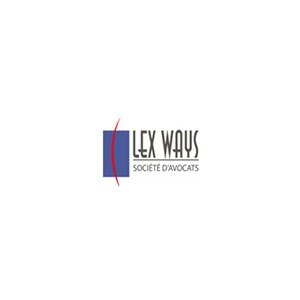Best Creditor Lawyers in Cocody
Share your needs with us, get contacted by law firms.
Free. Takes 2 min.
List of the best lawyers in Cocody, Ivory Coast
About Creditor Law in Cocody, Ivory Coast
Creditor law in Cocody, Ivory Coast, is centered around the rights and obligations of creditors and debtors within the region. The legal framework provides for the enforcement of debts, addressing insolvency issues, and ensuring fair practices in debt collection. Cocody, being an upscale suburb of Abidjan, experiences a diverse range of creditor-debtor relationships, often requiring clear legal guidelines to navigate disputes. The law aims to protect both parties' rights while maintaining a fair financial ecosystem.
Why You May Need a Lawyer
Individuals and businesses may seek legal assistance in creditor matters for several reasons. Common situations include disputes over unpaid debts, seeking to recover owed funds, facing aggressive debt collection tactics, dealing with insolvency or bankruptcy proceedings, and navigating complex contractual obligations. Legal expertise is essential in these scenarios to ensure compliance with local laws, protect one's rights, and achieve favorable outcomes.
Local Laws Overview
The legal framework governing creditor and debtor relationships in Cocody falls under the broader legal codes of Ivory Coast. Key aspects include:
- Debt Collection Regulations: Laws that outline ethical and legal debt recovery methods, ensuring that creditors do not engage in harassment or unfair practices.
- Insolvency and Bankruptcy: Legal proceedings that help manage the distribution of assets to creditors in cases where the debtor cannot meet financial obligations.
- Secured Transactions: Guidelines on how creditors can secure interests in the debtor's property to ensure repayment of loans.
- Contractual Obligations: Enforceability of contracts and the implications of non-compliance on both creditor and debtor sides.
Frequently Asked Questions
What should I do if I can't pay my debts?
Start by contacting your creditors to discuss payment alternatives. It is advisable to seek legal counsel to explore your options under local laws, such as restructuring debts or declaring bankruptcy if necessary.
Can creditors contact me at any time regarding unpaid debts?
Creditor contacts must adhere to regulations that prevent harassment. Contact should be reasonable and not involve threatening, abusive, or unfair practices.
How can a creditor legally recover a debt?
Legal debt recovery methods include filing a lawsuit to obtain a judgment, seizing secured assets, or working with debt collection agencies, all while adhering to local laws and regulations.
What is the difference between a secured and an unsecured debt?
Secured debts are backed by collateral, which creditors can claim if the debtor defaults. Unsecured debts have no associated collateral, posing higher risks to creditors.
How do bankruptcy laws affect creditors?
Bankruptcy proceedings prioritize the distribution of a debtor's assets to creditors, often resulting in partial recovery. Creditors must submit claims for consideration during the process.
Can a debtor dispute a debt claim?
Yes, debtors can dispute claims they believe to be invalid. It is often helpful to consult a lawyer to evaluate the claim's legitimacy and prepare any necessary legal responses.
Are interest rates on debts regulated?
Yes, interest rates may be subject to regulation to prevent usurious lending practices. Laws ensure terms remain fair and transparent to protect debtors.
How long does a creditor have to collect a debt?
Statute of limitations laws define the time frame within which creditors must initiate legal actions to collect debts, varying based on the type of obligation.
What should I expect during a debt collection lawsuit?
Expect legal proceedings where the creditor must prove the debt's legitimacy, after which the court may issue a judgment, potentially involving wage garnishments or asset seizures.
Can a creditor repossess my property without notice?
Repossessing property, particularly for secured debts, must follow legal protocols, often requiring notice to the debtor before taking action.
Additional Resources
For those seeking further information or legal assistance on creditor matters, consider reaching out to:
- Ministry of Justice, Ivory Coast: Provides legal framework resources and contact points for legal inquiries.
- Côte d'Ivoire Bar Association: Connecting with local attorneys skilled in creditor-debtor law.
- Consumer Protection Agencies: Offering guidance and assistance for debtors facing unfair practices.
- Local Mediation Services: Facilitating amicable solutions between creditors and debtors.
Next Steps
If you need legal assistance in creditor matters, the following steps can guide you:
- Assess Your Situation: Clearly understand your circumstances and document relevant information related to your debt or claim.
- Research Legal Resources: Utilize recommendations and resources listed above to gain insights into your legal standing.
- Consult a Legal Professional: Reach out to a lawyer experienced in creditor law. Initial consultations may clarify your options and strategies.
- Consider Alternative Dispute Resolution: Mediation or arbitration can be effective in resolving disputes without lengthy court procedures.
Lawzana helps you find the best lawyers and law firms in Cocody through a curated and pre-screened list of qualified legal professionals. Our platform offers rankings and detailed profiles of attorneys and law firms, allowing you to compare based on practice areas, including Creditor, experience, and client feedback.
Each profile includes a description of the firm's areas of practice, client reviews, team members and partners, year of establishment, spoken languages, office locations, contact information, social media presence, and any published articles or resources. Most firms on our platform speak English and are experienced in both local and international legal matters.
Get a quote from top-rated law firms in Cocody, Ivory Coast — quickly, securely, and without unnecessary hassle.
Disclaimer:
The information provided on this page is for general informational purposes only and does not constitute legal advice. While we strive to ensure the accuracy and relevance of the content, legal information may change over time, and interpretations of the law can vary. You should always consult with a qualified legal professional for advice specific to your situation.
We disclaim all liability for actions taken or not taken based on the content of this page. If you believe any information is incorrect or outdated, please contact us, and we will review and update it where appropriate.









